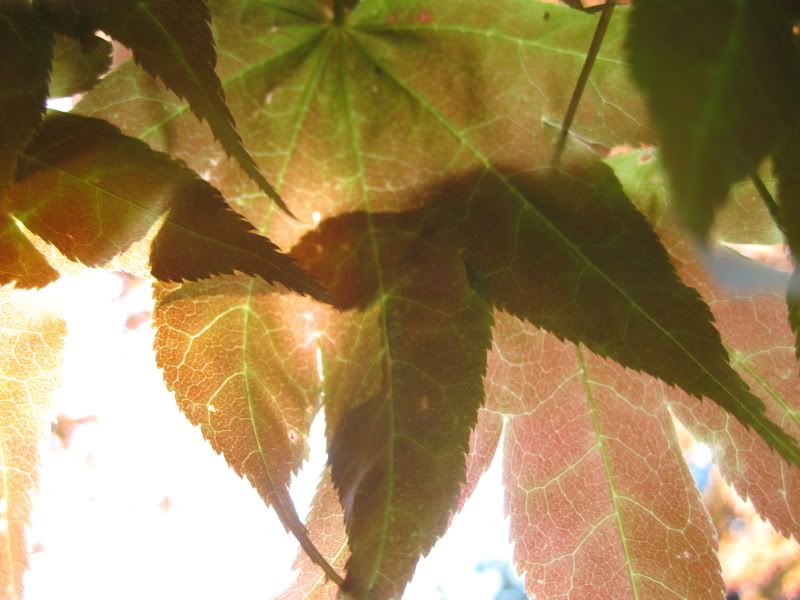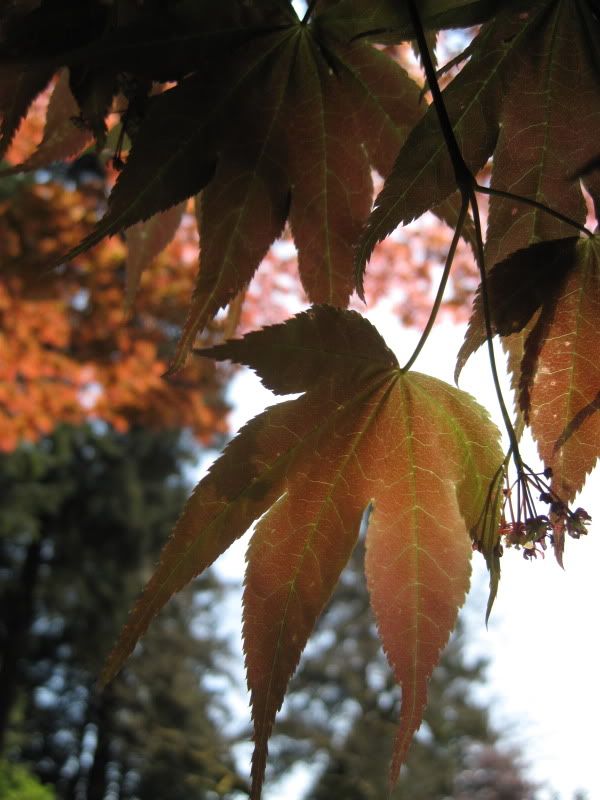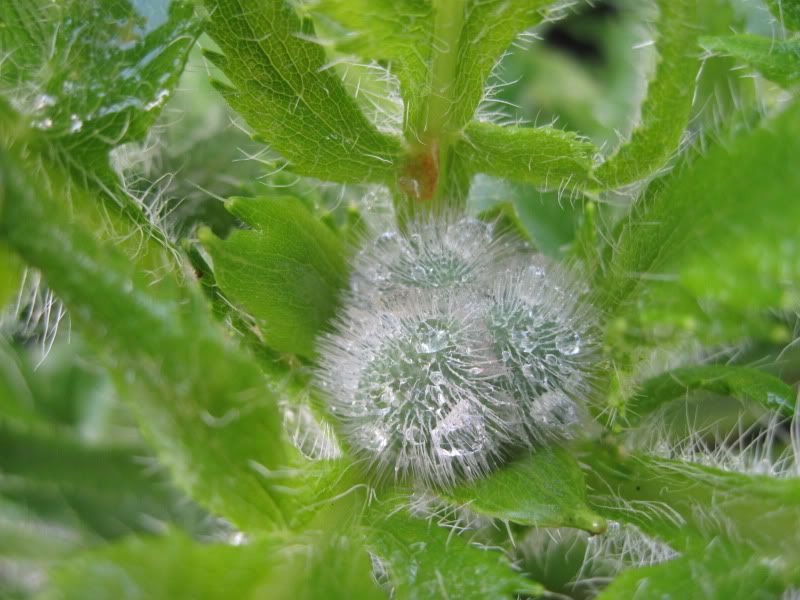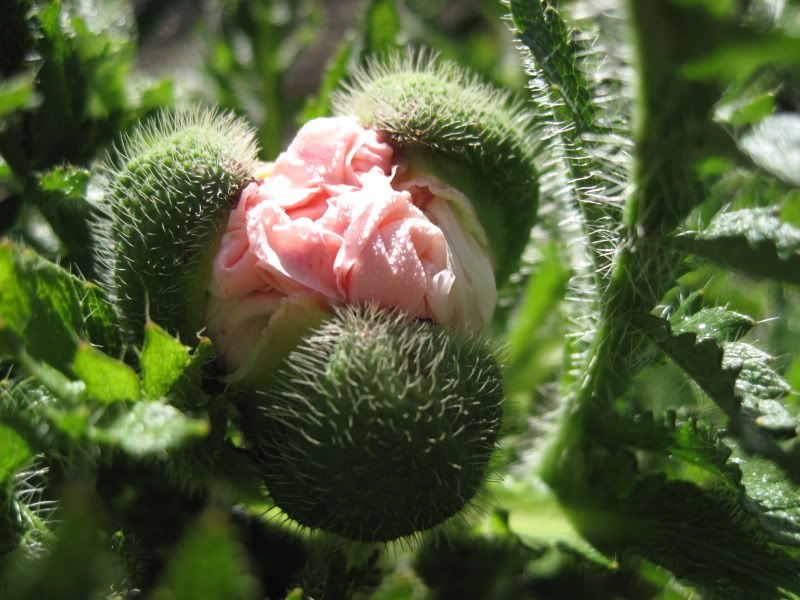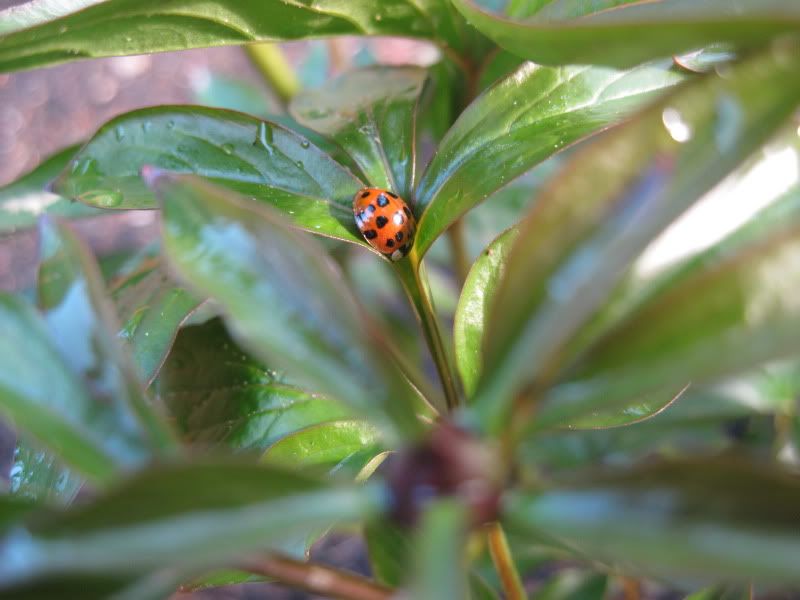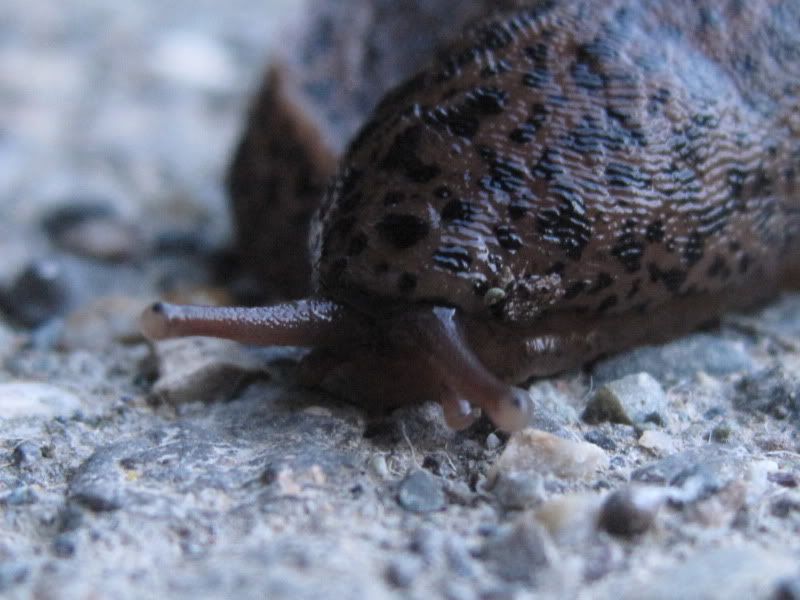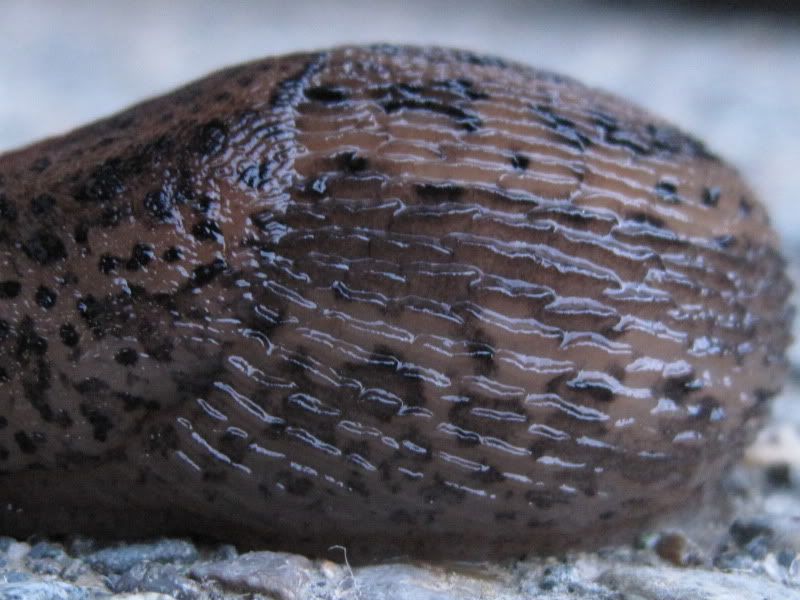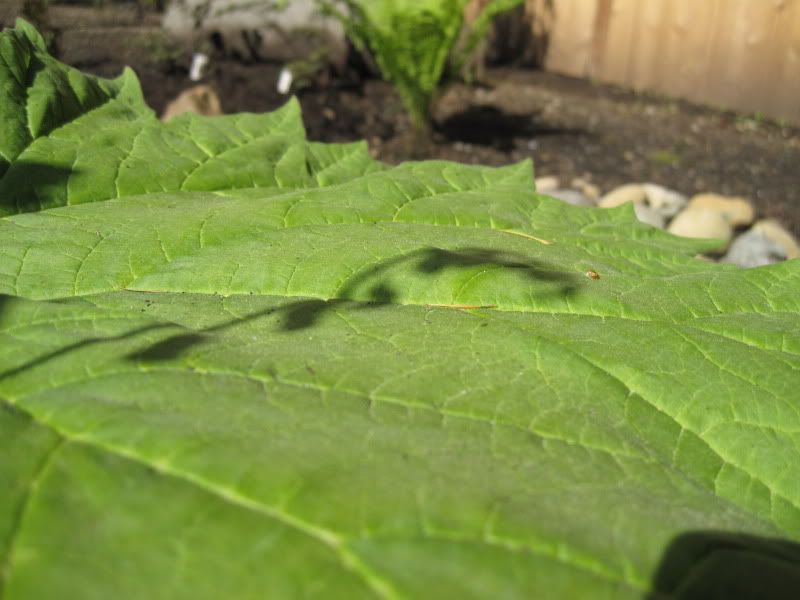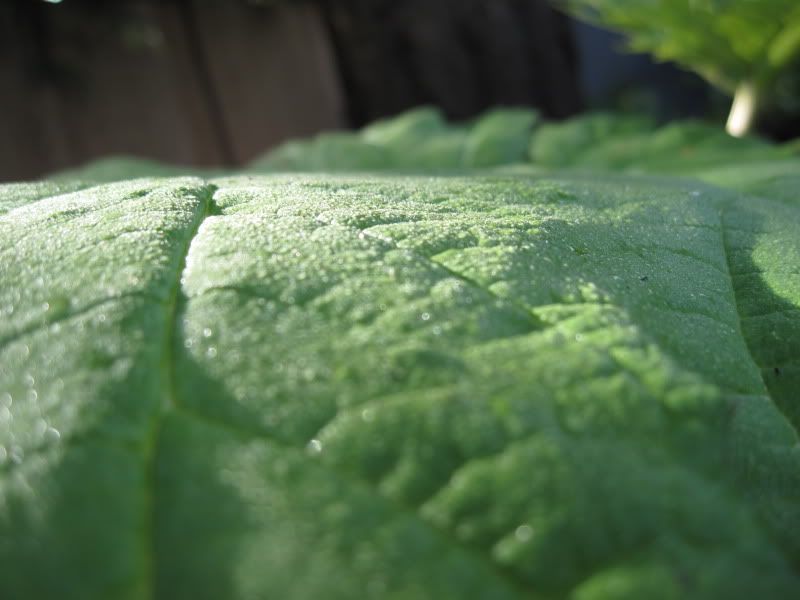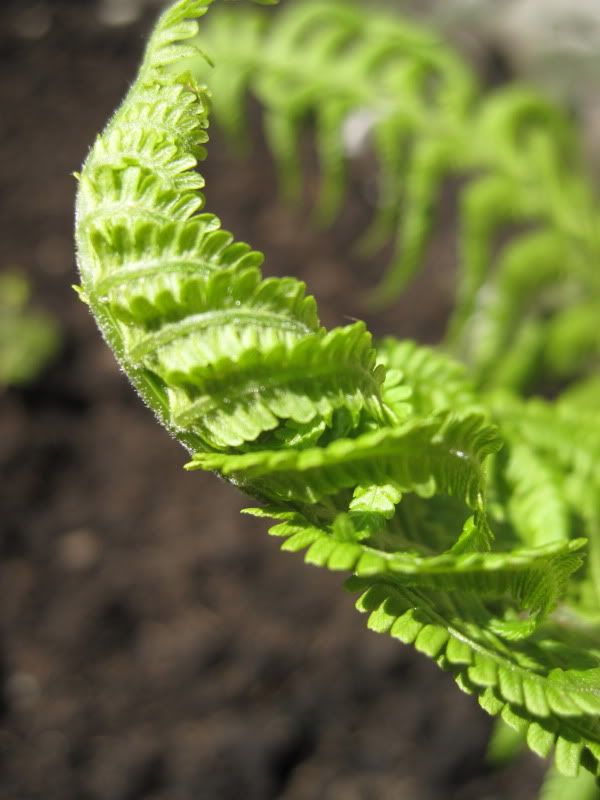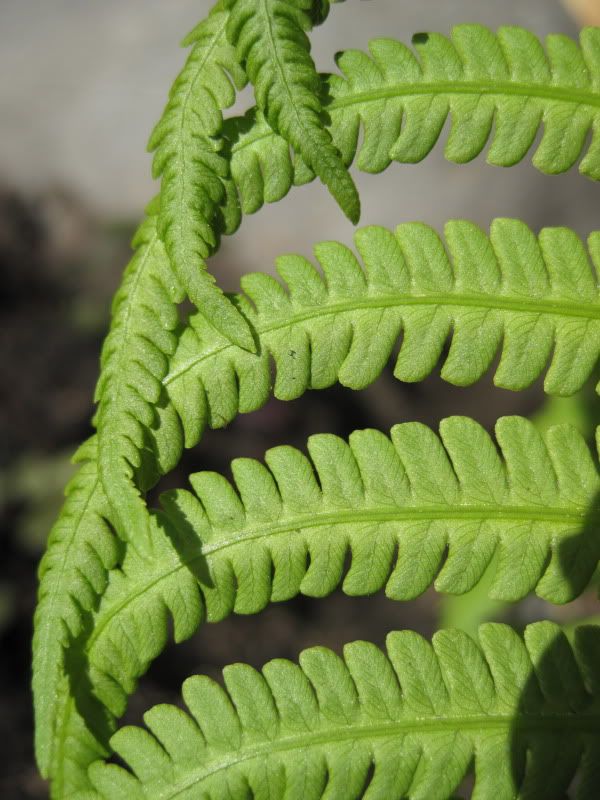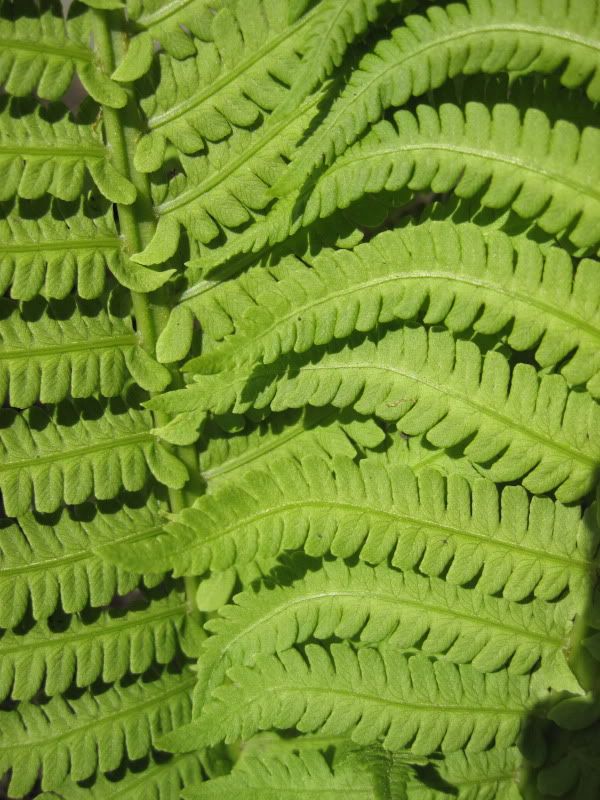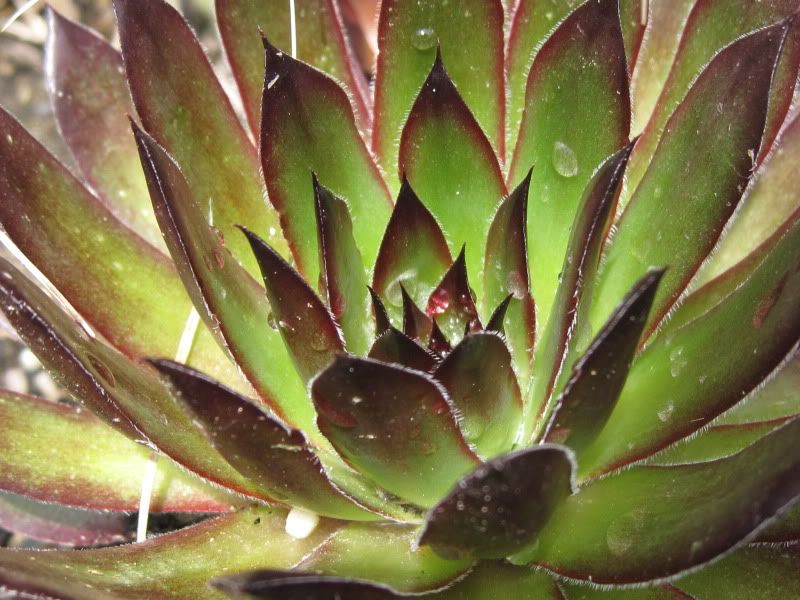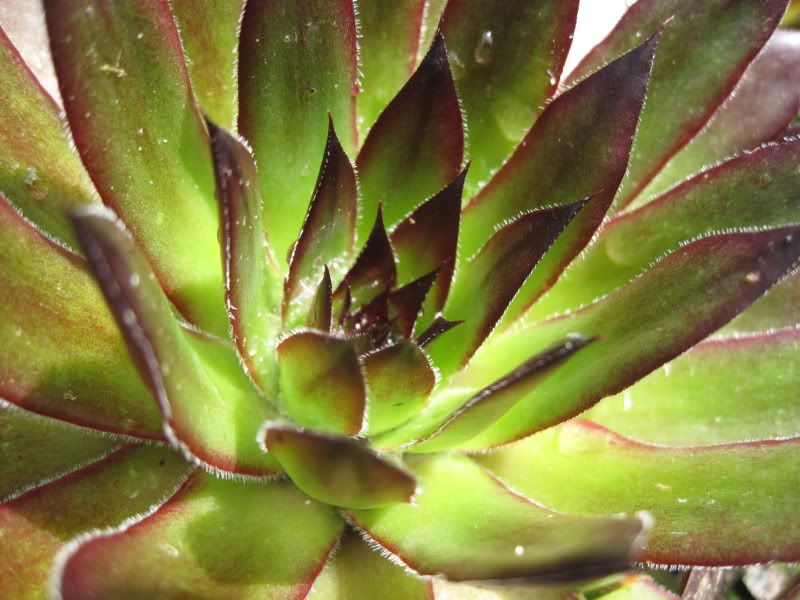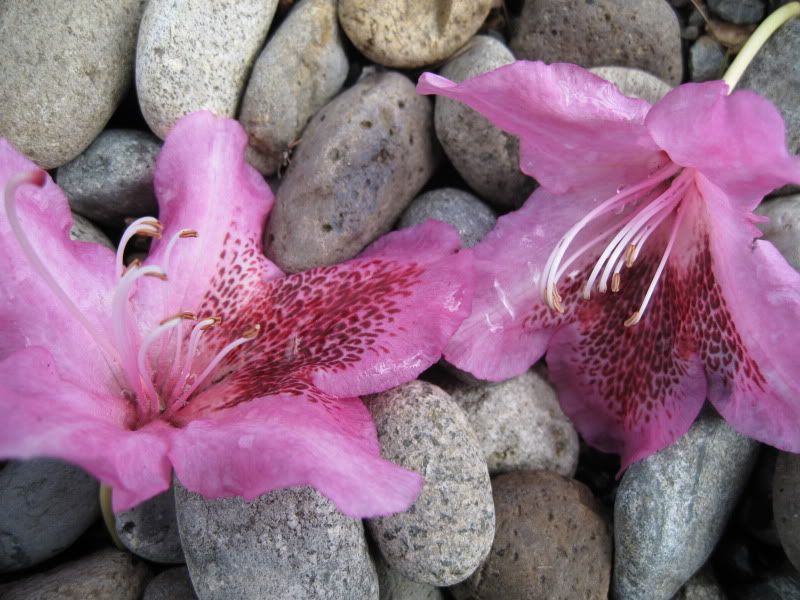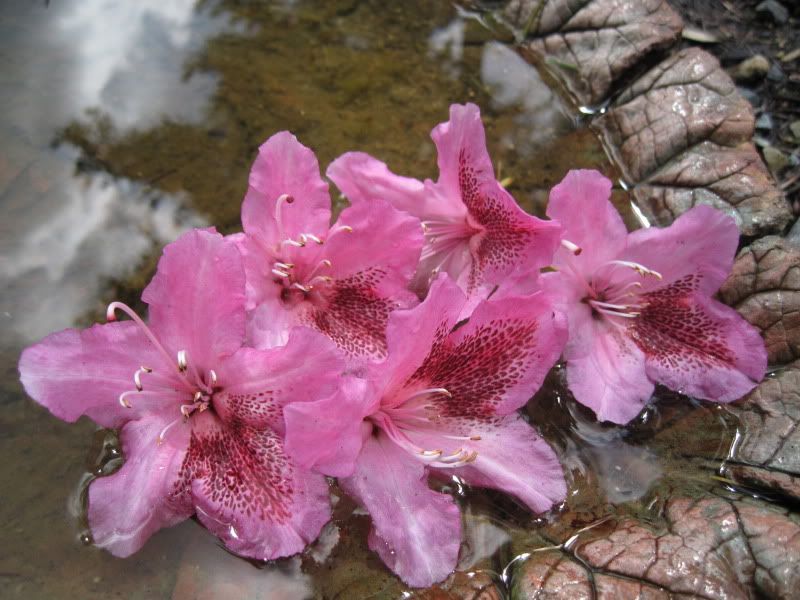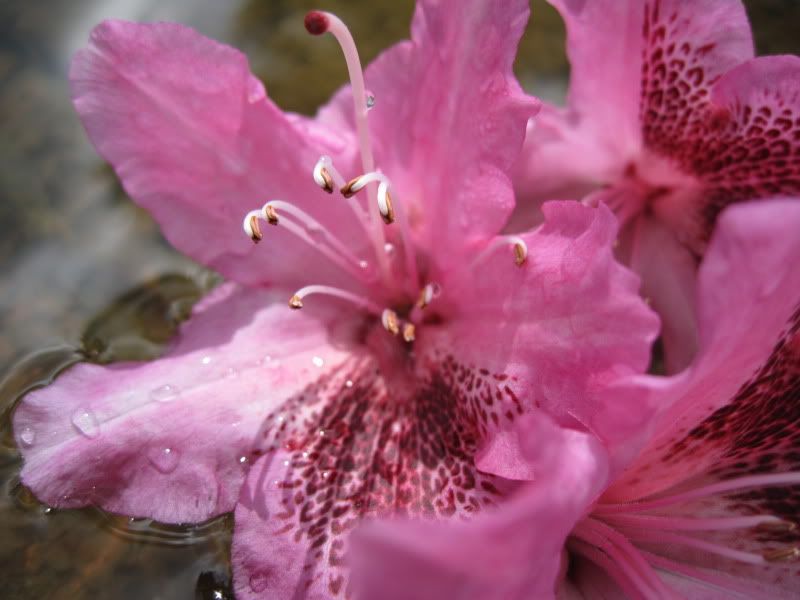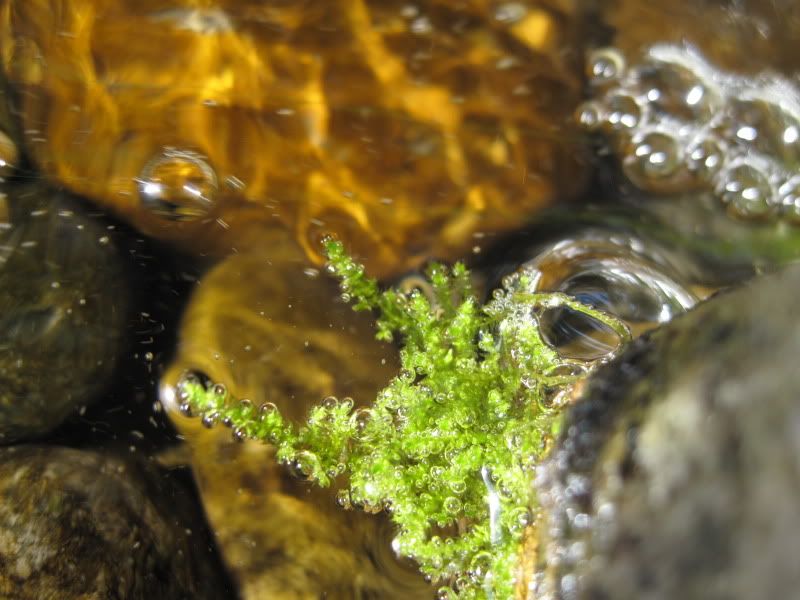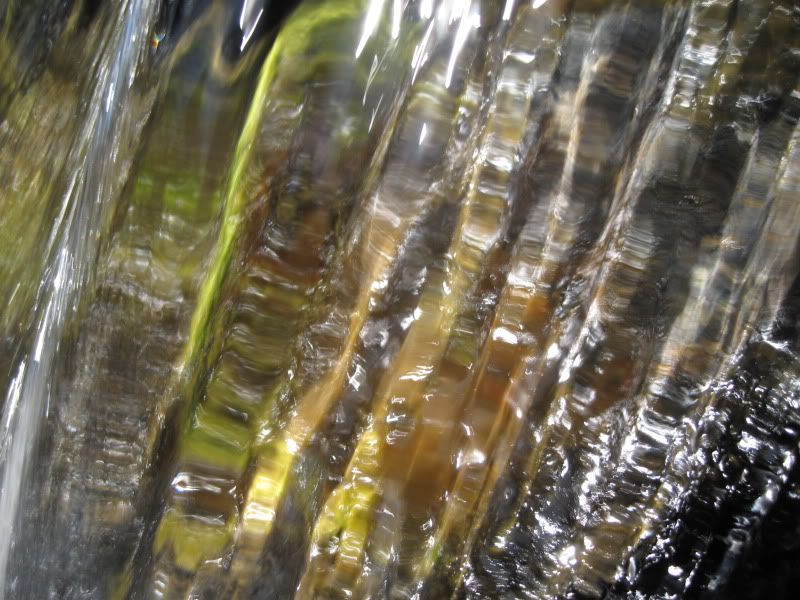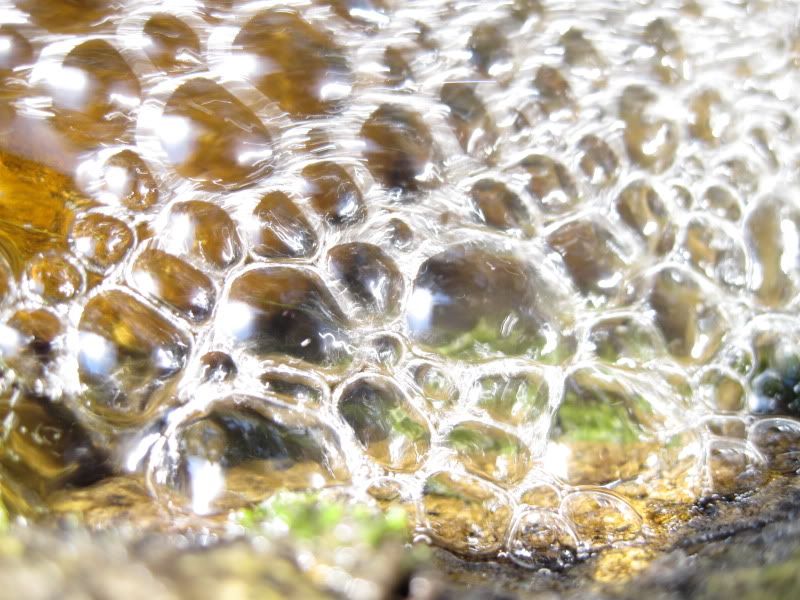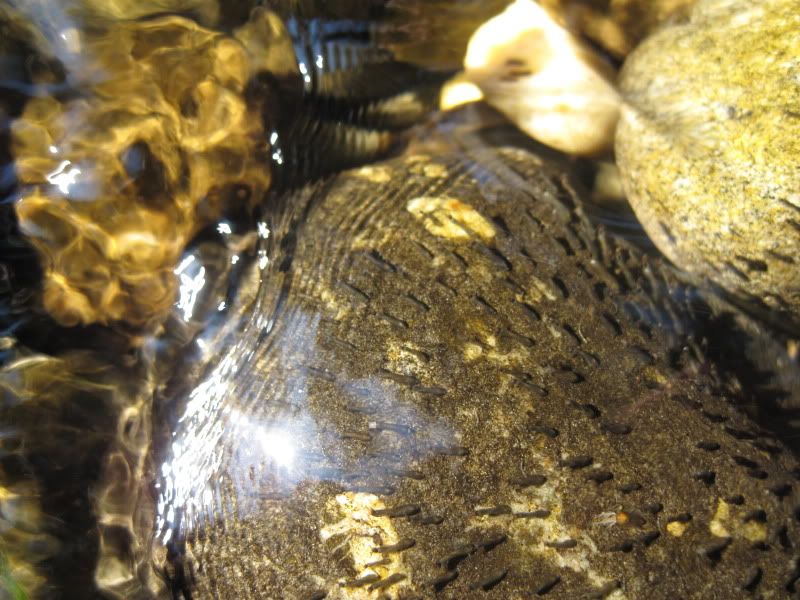Gardening Gone Wild is running another "Picture This" photo contest this month, focusing on the macro world and light. Last month's contest was about "the importance of seeing and understanding light in your photography." This month's is about applying any lessons learned doing last month's assignment to the world of close-up pictures.
I started out looking through months of macro pictures, trying to find one that applied. I only actually started using the macro setting on my point-and-shoot camera last summer, so I didn't have that many good pictures to work with. Also, here in the Pacific Northwest, with our cloudy, rainy weather, the sun is so seldom seen, it's hard to get dramatic lighting. Fortunately, last week the sun came out, just in time. So I decided to set my camera on macro and see how many new ones I could create.
Japanese maple leaves with the sun behind them.
Hairy poppy buds with dew on them.
Ladybug on peony foliage
I took a break from the camera to put together some annual pots, and when I turned one of my pots right-side up, I found a ginormous slug (well, as big as my index finger). Out came my camera yet again.
I found some interesting shadows and lunar textures on my ornamental rhubarb leaves.
Peek-a-boo.
The unfurling ferns made for some interesting close-ups.
I love the way the fronds are interlaced.
It wasn't until I came back in and loaded the pictures onto the computer that I realized I had taken these pictures of a Sempervivum that was positively glowing in the afternoon sun.
Someone taking a walk had dropped these rhododendron flowers onto the river rocks at the front of our house.
Bubbles and moss clinging to the rocks.
Froth!
A sheet of water, frozen by the lens.
Fast-moving bubbles, with many reflections of the seldom-seen Pacific Northwest sun.
What is clinging to this rock in serried rows? Is it marks on the rock? No, I'm pretty sure it's lots of tiny tadpoles, facing into the stream. They've made shadows on the surface of the rock, as well as on the adjacent rock.
This is the one.

